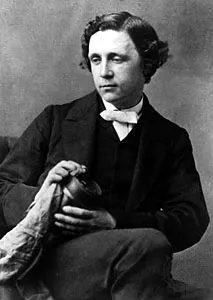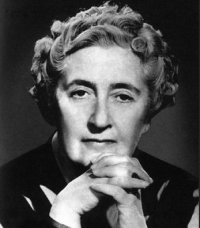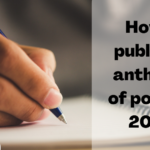Authors have used pen names to gain notoriety, engender mystery, or just to keep their personal identities apart from their writing throughout the history of literature. Pen names, also referred to as pseudonyms, can have an intriguing effect on a writer’s career by enabling them to experiment with various genres, conceal their true identity, or defy social expectations. Here, we’ll examine the backstories of some of the most well-known pen names in literature and the motivations behind these writers’ decisions to adopt a false identity.
You may also like: 5 Act Structure: Definition, Examples and More
What Is a Pen Name?
When an author publishes their work, they use a pen name, also known as a pseudonym, instead of their real identity. Pen names are used for a variety of reasons, including privacy concerns and literary experimentation. For some, a pseudonym allows them to reach a wider audience or mask their identity in order to avoid discrimination or judgment.
You may also read: List of 10 Best Libraries in Bangalore for Bookworms
Reasons Authors Use Pen Names
1. Privacy and Anonymity
Many authors use pen names to safeguard their privacy and anonymity, particularly when writing about delicate or controversial subjects. A pseudonym allows writers to express themselves creatively without fear of public scrutiny or repercussions on their personal life. Privacy is especially vital for authors who work in restricted areas or discuss sensitive political subjects. They can use a pen name to publicly share their work while keeping their identity confidential, providing for better personal protection and creative expression.
2. Gender Bias in Publishing
Gender inequality in publishing has traditionally influenced why some authors prefer to use pen names. Female authors, in particular, have assumed male or neutral pen names to avoid discrimination and attract a larger audience. In previous eras, many publishers and readers thought male writers were more believable, particularly in science fiction and mystery. By choosing pen names, these authors intended to avoid gender bias and have their work appraised on its merits rather than their gender. This method paved the path for increased acceptance of various voices in writing.
3. Genre Exploration and Reinvention
Authors frequently utilize pen names to experiment with new genres or rework their writing style while maintaining their established reputation. A writer known for romantic books, for example, may use a pen name to write thrillers or science fiction without confusing their loyal audience. This flexibility enables authors to be creative and reach new audiences without preconceived notions. They can safely explore multiple themes, tones, or styles under a pseudonym, thus broadening their literary reach and variety.
You may also like: List of Top 10 Famous Durjoy Dutta Books of All Time
4. Political or Social Reasons
Many authors adopt pen names for political or social reasons, such as avoiding retaliation for their ideas or ensuring their personal safety. Some writers have strong views on difficult issues, and choosing a pen name might protect them from criticism or censure, particularly in nations with rigorous freedom of expression laws. Furthermore, authors can use pseudonyms to explore difficult societal problems without jeopardizing their personal life, allowing them to express themselves more freely.
5. Cultural and Language Considerations
Cultural and linguistic reasons frequently cause authors to utilize pen names, particularly when writing for audiences outside their own culture or language. A pen name can assist bridge cultural gaps by making the author’s persona more approachable or known to readers from various places. For example, an author from a non-English-speaking country may choose an English pen name to attract English-speaking readers. This strategy allows them to interact with readers more effectively while eliminating potential cultural or linguistic hurdles.
You may also read: Top 10 Book Clubs in Mumbai That Everyone Should Join
Famous Authors Who Used Pen Names and Their Stories
Many beloved authors have relied on pseudonyms to shape their careers, sometimes achieving iconic status in their alter ego. Here’s a closer look at the stories of a few renowned authors and their pen names.
Samuel Clemens picked “Mark Twain” as his pen name, referring to a riverboat word that means “safe depth.” The pen name assisted Clemens in establishing a distinct persona that became a symbol of American humor and wit, embodying a distinct voice that addressed the culture and issues of nineteenth-century America.

Mark Twain (Samuel Clemens)
Mary Ann Evans used the moniker “George Eliot” to publish her works during a time when women writers were frequently rejected in respectable literary circles. Under this masculine alias, she penned celebrated works such as Middlemarch, cementing her position as one of the best novelists of her time.

George Eliot (Mary Ann Evans)
Following the popularity of the Harry Potter series, J.K. Rowling began writing criminal fiction under the alias “Robert Galbraith”. Rowling used a pen name to have a fresh start in a new genre without the pressure of her well-known identity.

J.K. Rowling (Robert Galbraith)
Lewis Carroll (Charles Lutwidge Dodgson)
Charles Lutwidge Dodgson, well known as Lewis Carroll, adopted his pen name to differentiate his whimsical, imaginative works, such as Alice’s Adventures in Wonderland, from his job as a mathematician and academic. These dual identities permitted Dodgson to experiment with fantastical writing while maintaining his scientific reputation.

Lewis Carroll (Charles Lutwidge Dodgson)
Dr. Seuss (Theodor Seuss Geisel)
Theodor Geisel’s distinctive pen name, “Dr. Seuss,” has become synonymous with children’s literature. Adopting a colorful, recognisable name helped Geisel create a brand that continues to enchant young readers around the world with its rhymes, vibrant visuals, and moral themes.

Dr. Seuss (Theodor Seuss Geisel)
Lemony Snicket (Daniel Handler)
Daniel Handler used the alias “Lemony Snicket” for his A Series of Unfortunate Events books. This pen name infused his novels with mystery and dark humor, heightening the narrative’s tone and immersing readers in a unique reading experience.

Lemony Snicket (Daniel Handler)
Stephen King (Richard Bachman)
Stephen King famously wrote under the pen name “Richard Bachman” to determine whether his success was purely due to his name. Bachman’s works were well-received until King’s identity was exposed, displaying his ability as a storyteller in the absence of his established fame.

Stephen King (Richard Bachman)
Agatha Christie (Mary Westmacott)
Agatha Christie is well-known for her detective novels, but she also published romantic novels under the name “Mary Westmacott.” This pseudonym allowed her to experiment with a different genre while maintaining her mystery-focused brand.
You may also like: What are the main elements of creative writing?

Agatha Christie (Mary Westmacott)
Modern Authors and Pen Names
In today’s internet world, pen names remain significant. Some authors use pseudonyms to distinguish between different creative endeavors or to target specific online audiences. The reasons may vary, but the spirit of exploring new identities under a pen name lives on.
Conclusions
Authors have adopted pen names throughout history to navigate the difficult business of publishing and create personas that resonate with their readers. Pseudonyms allow writers to take on a new character, whether to avoid societal bias, protect their privacy, or explore new genres, and they have had a significant impact in literary history.
















